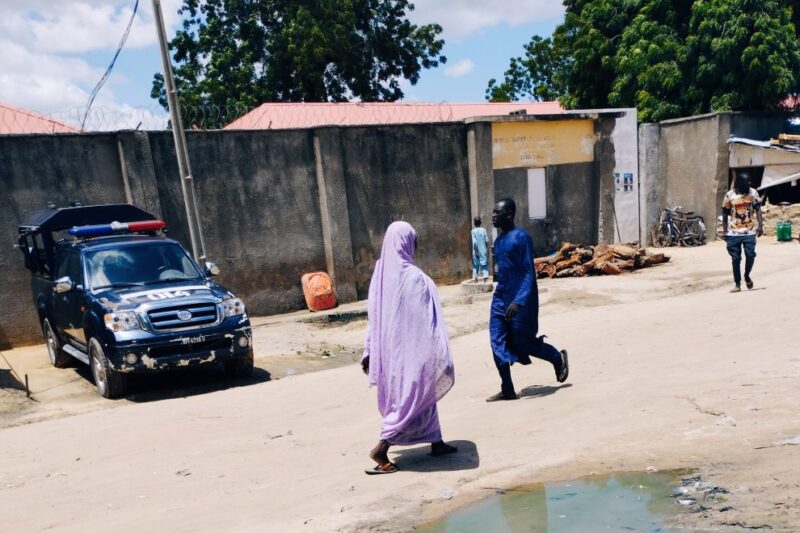It’s time for women in Nigeria’s northeast to smash the shackles of silence and to speak out about issues that affect them, even if this means tearing down the stereotype that only men have the right to speak and women should simply obey.
Some factors that affect women’s freedom of expression include religion, stereotypes, culture, customs and traditions.
Fatima Grema Modu, a woman journalist who works at Radio Ndarason International (RNI) said: “It’s up to female journalists to make women’s voices heard. For so long, only men could talk, even about issues that affect women. We women journalists need to do what we can to change that narrative by encouraging women to participate and speak out on issues that affect them.
“Being a woman journalist can be a bit difficult and we face challenges. Sometimes even men do not want to be interviewed because the journalist is a woman. Culture, religion, customs and traditions in Borno State play a distinct role in keeping women quiet. Despite all these, we are working hard to get more women representatives on radio and in other media.
“Nowhere does it say that women cannot speak on radio as men do. I urge women journalists to get activists to talk about the issues that affect them; to get the views of ordinary women; and to contribute in their own way towards peacebuilding and overall national development.”
Ibrahim Uba Yusuf, a senior lecturer at the mass communication department at Maiduguri University, told RNI that the ethics and principles of journalism contained in the Nigerian constitution did not allow any journalist to discriminate against people, be they men or women, young or old, or those living with disabilities.
“This indicates that everyone must be treated equally, regardless of gender, physical appearance, status, religion, tribe and location. It is inappropriate and unethical for journalists to stereotype women to keep them quiet and not to allow them freedom of expression.”
Yusuf said it was the responsibility of the National Association of Women Journalists (NAWOJ) to encourage more women to speak to the media.
He said every journalist needed to stick to the code of ethics, particularly the principles of balance and objectivity.
Even though there were women who were not happy about speaking to the media – mostly because of the stereotype that only men were qualified to speak out – more women were coming forward.
Fatima Abba, a journalist working at Radio Al- Ansar radio, based in Maiduguri, told RNI about challenges she has encountered when approaching women to talk on radio.
“I produce programmes related to women, focusing on business, education and health. I face a lot of challenges getting women guests to agree to be interviewed. Some are terrified and others are very shy. Some women want to participate but they are forbidden to do so by their husbands or parents.
“Religious beliefs, customs and traditions are mainly the problem. The number of women who participate is definitely increasing. Compared with four or five years ago, many more women are prepared to participate. Now women have a better understanding of the media but they are still sometimes hesitant about speaking out.”
RNI reporters said only two or three out of 10 women would grant them an interview – and, if they did, many asked to remain anonymous.
Fatima Ali, a resident of Maiduguri, told RNI that she had no problems about being interviewed.
“I can exercise my freedom of expression. When I was interviewed, I answered the questions willingly. I am one of the lucky ones. Many women’s parents or husbands do not allow them to share their thoughts in the media.”
Zara Adam told RNI that she was more than willing to speak to the press.
But, she said, she had found that some of the male journalists did not want to interview her because they believed only men’s views counted.
“This stereotyping must stop. Women hold views as strongly as men. We should all be given equal access to the media.”
Hadiza Mustapha said she had spoken on radio many times without fear.
“But, unfortunately, some women are not allowed to speak to the media because their husbands and parents believe that it goes against the teachings of Islam and their culture, customs and traditions don’t allow it. Married women need to get their husband’s permission first. Unmarried women usually need to ask permission from their parents and/or guardians.”
SHETTIMA LAWAN MONGUNO









